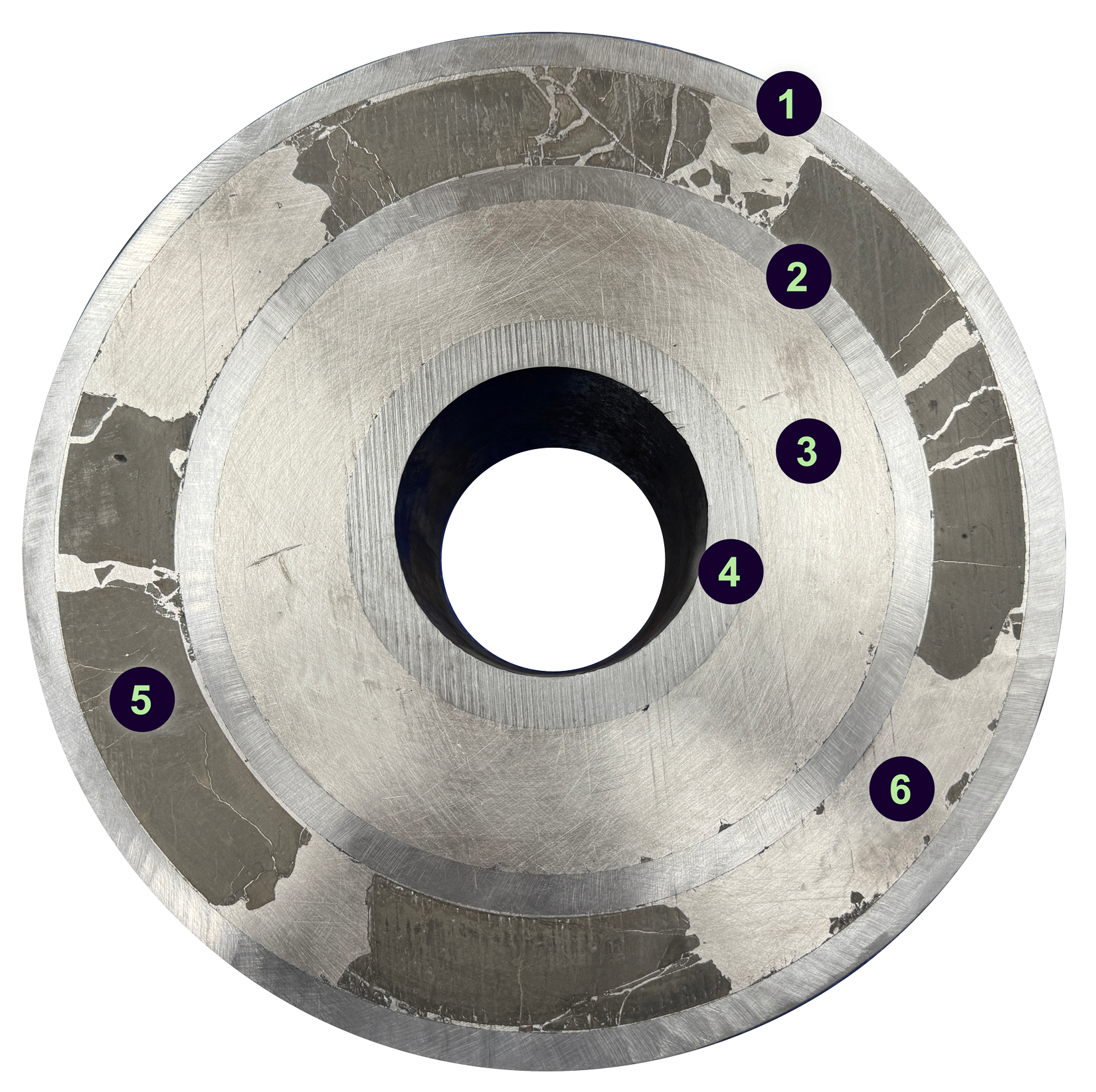Permanently plugging and abandoning a well requires permanent barrier(s) to be set above each zone containing hydrocarbons and/or other fluids with over-pressure and/or flow potential. (Havtil December 2021)
Wellstrøm’s unique bismuth alloys offers a high-performance and highly durable alternative to conventional wellbore sealing and zonal isolation solutions such as cement.
The solution offers the potential to deliver rigless wellbore sealing opportunities at dramatically lower cost and environmenta footprint.
Bismuth Alloy
– creep-resistant expanding alloy
Bismuth is number 83 in the periodic table of elements – a metal with several unique and unusual properties that when alloyed with other key elements make it highly suited to wellbore sealing applications:
- Low melting points facilitating controlled electrical deployment
- High density enabling effective displacement of wellbore fluids
- Dynamic viscosity similar to water and able to penetrate micrometer-scale cracks
- Non-toxic and corrosion resistant
- Expands upon cooling & solidification to provide a tenacious, gas-tight seal capable of withstanding high differential pressures
Wellstrøm has a unique set of alloys suitable for both standard (70 – 90oC / 158 – 194oF) and HPHT environments (140 – 160oC / 284 – 320oF ) in both on- and offshore settings. Examples of out alloys include:
Alloy 10: Low temperature and shallow applications where it is important to set the barrier without heating above 100 oC / 212 oF
Alloy 80: This is our most commonly used alloy. Its relatively low melting point, strength, high-creep resistance, and extreme service life make it ideal for many applications.
Alloy 150: High temperature applications require an alloy capable of maintaining strength and resisting creep at elevated temperatures. Alloy 150 can handle high temperatures, and its high expansion ratio means it can be used in wells with a large variation in temperature.

Our Bismuth solution
Solidifies
Bismuth expands when it solidifies – the same happens with water, gallium, silicon and germanium.
Relatively low melting point
Low melting points enable seals to be cast in-situ – and removed if required – using specially modified electrical or thermite heat delivered by wireline.
Low viscosity and high density
The low viscosity of the molten alloy enables penetration into porous substrates with pore throats as tight as 25 microns, with expansion on solidification for a gas-tight seal.
Plug sizes
As an example of the capabilities of bismuth, a 0.91m (3′) bismuth plug can readily outperform a conventional seal.
The vision is to develop this technology to deliver a fully rigless and reliable wellbore plugging technology
– Alex Lucas, Lead Well Engineer – Well Decommissioning at TotalEnergies
